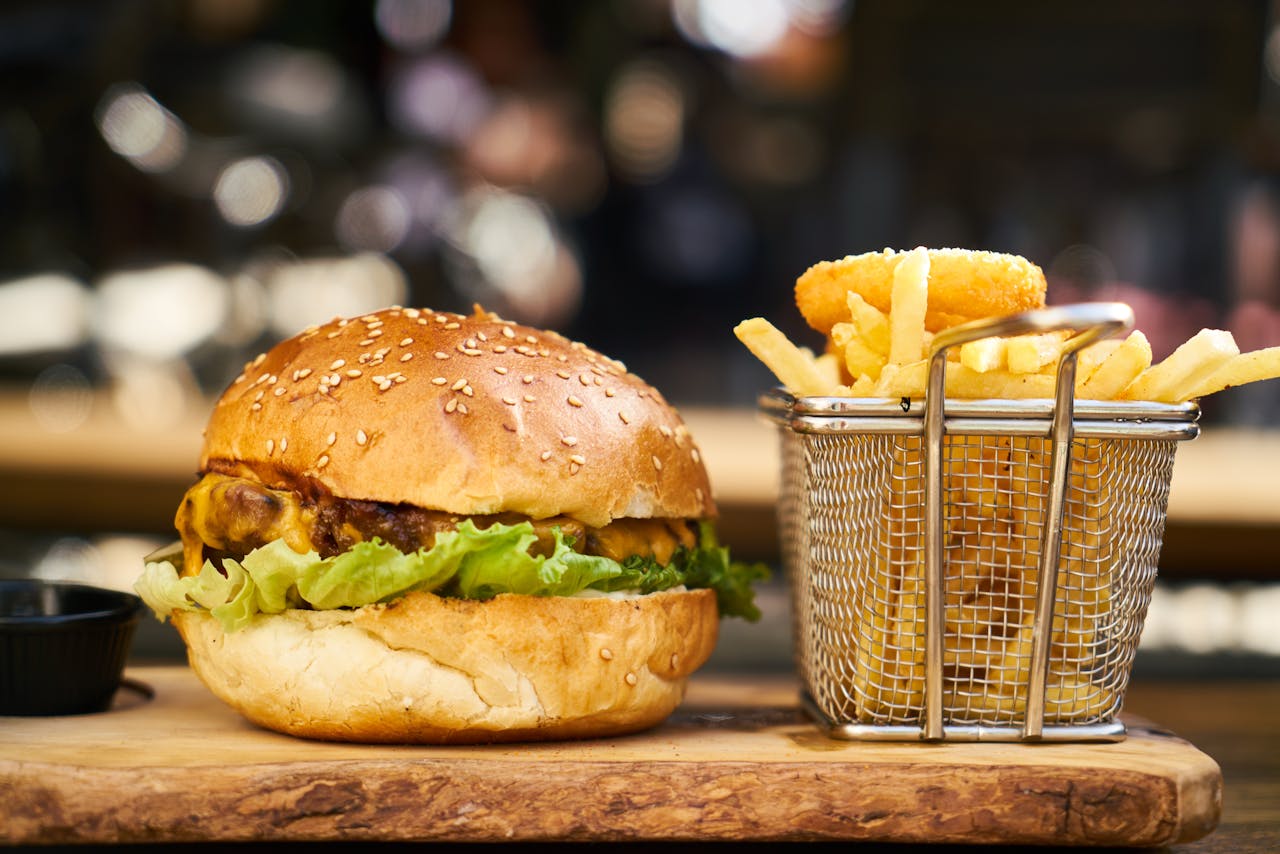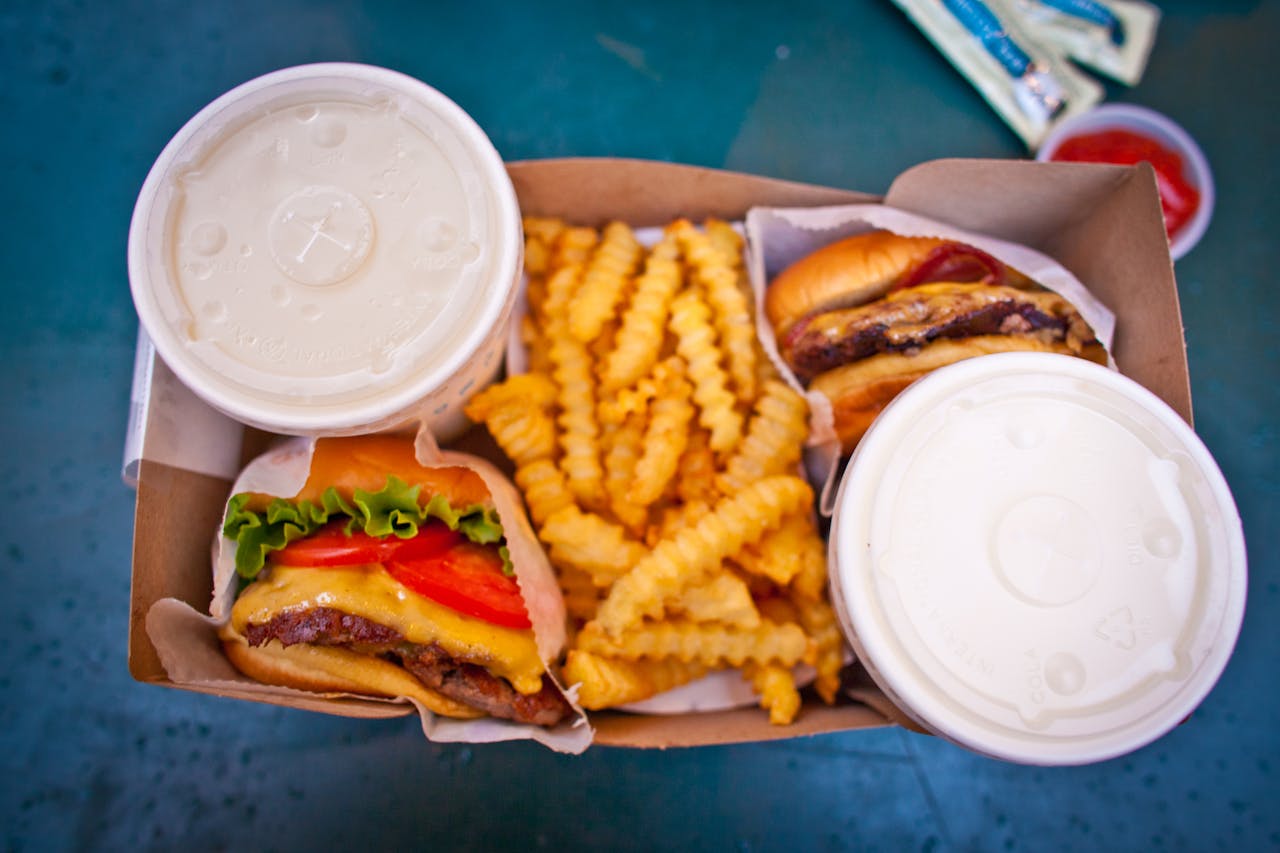Fast food promotions are designed to attract customers, boost sales, and create buzz. But sometimes, these marketing stunts backfire in spectacular fashion, leaving brands scrambling to apologize and customers feeling betrayed or offended. Why does this matter to you? Because as a consumer, you want to know which fast food promotions to trust—and which ones to avoid. Understanding the pitfalls of these campaigns can help you make smarter choices, avoid disappointment, and even save money. Let’s dive into nine fast food promotions that caused public outrage, and what you can learn from each one.

Image Source: pexels.com
1. Burger King’s “Women Belong in the Kitchen” Tweet
In 2021, Burger King UK tried to promote a scholarship for female chefs with a tweet that read, “Women belong in the kitchen.” The intention was to highlight gender inequality in the culinary world, but the execution was tone-deaf and sparked immediate backlash. Social media users accused the brand of perpetuating sexist stereotypes, and Burger King quickly deleted the tweet and issued an apology. This fast food promotion is a classic example of how shock value can overshadow good intentions. When brands use controversial language, even for a cause, it can easily backfire and damage their reputation.
2. McDonald’s “Sundae Bloody Sundae” in Portugal
McDonald’s Portugal launched a Halloween-themed dessert called “Sundae Bloody Sundae,” not realizing the phrase referenced a tragic massacre in Northern Ireland. The promotion was met with outrage from people who found it insensitive and offensive. McDonald’s pulled the campaign and apologized, but the damage had already been done. This fast-food promotion highlights the importance of cultural awareness in marketing. Brands—and consumers—should be mindful of historical context before jumping on a catchy phrase.
3. KFC’s “Finger Lickin’ Good” During COVID-19
At the height of the COVID-19 pandemic, KFC continued using its iconic “Finger Lickin’ Good” slogan. With public health officials urging people to avoid touching their faces, the slogan suddenly felt out of touch and even dangerous. After public criticism, KFC suspended the slogan worldwide. This fast food promotion highlights how timing and context matter. Even the most beloved catchphrases can become problematic if they clash with current events or public health advice.
4. Domino’s “Free Pizza for Life” in Russia
Domino’s Russia launched a promotion offering 100 years of free pizza to anyone who tattooed their logo on a visible part of their body. The campaign went viral, and hundreds of people rushed to get inked. Domino’s was quickly overwhelmed and had to end the promotion early, leaving many participants angry and disappointed. This fast food promotion teaches a valuable lesson: always read the fine print and consider the risks before participating in extreme marketing stunts.
5. Subway’s “Footlong” Not Actually a Foot Long
Subway’s “Footlong” sandwiches became the subject of a class-action lawsuit when customers discovered that some sandwiches measured less than 12 inches. The controversy led to widespread outrage and negative press, forcing Subway to clarify its advertising and improve consistency. This fast food promotion serves as a reminder to review the details of any deal or offer carefully. If something sounds too good to be true, it might be worth measuring for yourself.

Image Source: pexels.com
6. Taco Bell’s “Steal a Base, Steal a Taco” Confusion
Taco Bell’s “Steal a Base, Steal a Taco” promotion during the World Series promised a free taco to everyone in America if a base was stolen during the game. While the idea was fun, many customers were confused about how and when to claim their free taco. Some individuals showed up at the wrong time or location, resulting in frustration and disappointment. This fast-food promotion demonstrates that clear communication is key. Always read the terms and conditions, and don’t be afraid to ask questions before heading to the drive-thru.
7. Wendy’s “Twitter Roasts” Go Too Far
Wendy’s became famous for its witty and savage Twitter roasts, but sometimes the jokes crossed the line. In several instances, the brand’s social media team made comments that were seen as mean-spirited or offensive, sparking backlash from customers and advocacy groups. This fast food promotion demonstrates the fine line between humor and harm. Brands—and consumers—should remember that online banter can quickly turn into a PR nightmare.
8. Chick-fil-A’s “Cow Appreciation Day” Costume Controversy
Chick-fil-A’s annual “Cow Appreciation Day” encouraged customers to dress up as cows for a free meal. However, some participants felt uncomfortable with the pressure to wear costumes, and others reported being turned away for not meeting the dress code. The promotion led to complaints about inclusivity and accessibility. This fast food promotion is a reminder that not everyone wants to participate in elaborate stunts for a discount. Look for deals that are easy to access and don’t require jumping through hoops.
9. Pizza Hut’s “Pizza for a Year” Misunderstanding
Pizza Hut once ran a contest promising “pizza for a year” to winners, but the fine print revealed it was actually just one pizza per month. Many customers felt misled and voiced their outrage online. This fast food promotion underscores the importance of transparency. Always check the details of any contest or giveaway, and don’t hesitate to call out misleading advertising.
What These Fast Food Promotions Teach Us About Smart Choices
Fast food promotions can be tempting, but they’re not always as good as they seem. The stories above show that even the biggest brands can make mistakes that lead to public outrage. As a consumer, you have the power to spot red flags, read the fine print, and make informed decisions. The next time you see a fast food promotion that seems too wild or too good to be true, take a moment to think it through. Your wallet—and your peace of mind—will thank you.
Have you ever been burned by a fast food promotion? Share your story or thoughts in the comments below!
Read More
The Dark Side of Loyalty Programs: Are Discounts Worth Your Data?
5 Controversial Tactics Used by Retailers to Combat Shoplifting

